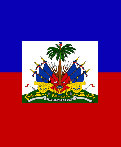NYU Law students play key role in filing claims against the U.N. on behalf of cholera victims in Haiti
 Three current and former NYU Law students are members of a team seeking redress for victims of a cholera outbreak in Haiti that has killed more than 6,400 and sickened half a million others. The disease appears to have been brought to Haiti by a group of United Nations peacekeepers from Nepal. Bea Lindstrom ’10, Greger Calhan ’12, and Ellie Happel ’11, have worked with the Boston-based Institute for Justice and Democracy in Haiti (IJDH), which has filed complaints with an internal claims unit of the U.N. seeking compensation for families of those who died, and for cholera survivors. Lindstrom, Calhan, and Happel—in each case with funding from NYU Law—have worked for the Bureau des Avocats Internationaux (BAI) in Haiti, a sister organization of IJDH, and through that connection got involved with the cholera claims.
Three current and former NYU Law students are members of a team seeking redress for victims of a cholera outbreak in Haiti that has killed more than 6,400 and sickened half a million others. The disease appears to have been brought to Haiti by a group of United Nations peacekeepers from Nepal. Bea Lindstrom ’10, Greger Calhan ’12, and Ellie Happel ’11, have worked with the Boston-based Institute for Justice and Democracy in Haiti (IJDH), which has filed complaints with an internal claims unit of the U.N. seeking compensation for families of those who died, and for cholera survivors. Lindstrom, Calhan, and Happel—in each case with funding from NYU Law—have worked for the Bureau des Avocats Internationaux (BAI) in Haiti, a sister organization of IJDH, and through that connection got involved with the cholera claims.
In a petition for relief filed with the U.N., IJDH alleges the organization failed to adequately screen the peacekeeping troops, and failed to maintain sanitation at one of its facilities in Haiti, resulting in contamination of a river that is widely used for drinking, bathing, washing, and irrigation. “The cholera outbreak is directly attributable to the negligence, gross negligence, recklessness and deliberate indifference for the health and lives of Haiti’s citizens by the United Nations,” the petition says. The filing has drawn substantial media attention, including from the Associated Press, the BBC, CNN and elsewhere. "We are advocating for justice for Haiti's cholera victims, but we are also pushing a larger question of accountability,” says Lindstrom. "Accountability is such a central principle of human rights law, and it's exciting to be a part of a case that incites a critical examination of the legal framework in which the U.N. and other powerful international organizations operate."
Posted on November 30, 2011

